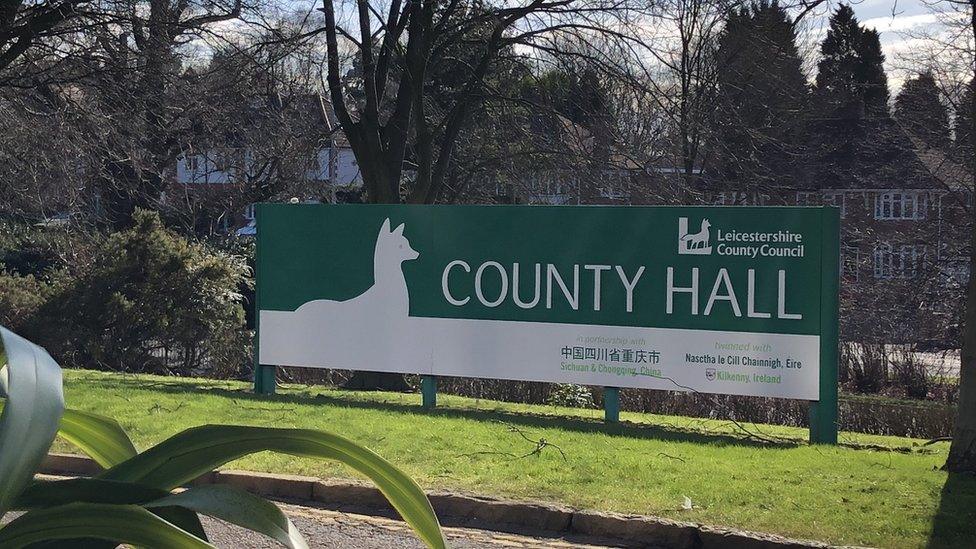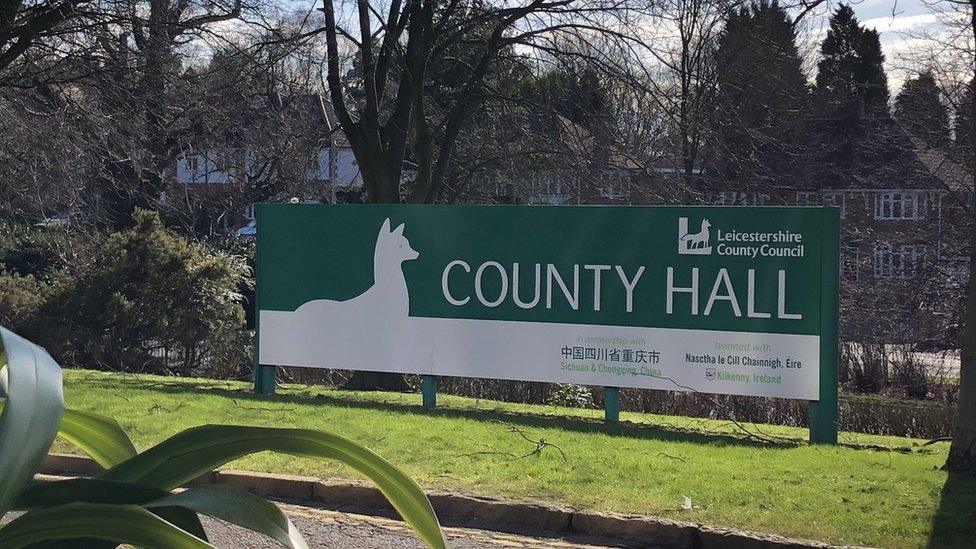Leicestershire County Council deficit set to increase by millions
- Published

Inflation and increasing demand for key services have made the situation worse, the report said
Leicestershire County Council says it could be forced to make cuts to frontline services as an increased budget deficit is forecast.
A report published on Tuesday, external said the council's deficit was likely to increase from £8m to £28m next year, and could reach £140m by 2026.
It says savings could have to be made from services such as road gritting, bus subsidies and park maintenance.
The council's cabinet will meet on Friday to discuss budget plans.
A proposal to cover the next four years is set to be published in December.
'Tough decisions'
The report said the council "is facing a challenging, worsening and frightening financial outlook", made worse by rising inflation and "ever-increasing demand for core services".
Service costs are expected to increase in cost by £18m each year before inflation is taken into account, with additional expenditure expected for building roads, schools and other investment projects if rising infrastructure costs do not decline.
Nick Rushton, leader of the county council, said the authority had lost "£230m a year in spending power since 2010", meaning further cuts would affect frontline services.
"Our financial situation is frightening, worse than the years of austerity," he said.
"We pride ourselves on doing the best we can with the money we have but we will have to make some tough decisions.
"Nothing is off the table."

Analysis
By Tim Parker, BBC Radio Leicester political reporter
Leicestershire is not alone in local government, facing increasingly tough financial choices as inflation and general costs increase.
All councils have to plan budgets ahead and balance the books from year to year, and that is the big challenge when so much is uncertain in the economy.
Leicestershire argues its options are limited - it has already made massive efficiency savings.
Asking for a huge council tax rise to boost income will not wash with households already suffering in the cost of living crisis.
The government so far seems unwilling to step in directly to help, and the council claiming it cannot balance the books is the nuclear option, which would force central government to step in and run things.
That could see the end of the council altogether - look what happened down the road in Northamptonshire three years ago.
Whatever decisions lie ahead, the 'least worst' may become the normal.


Follow BBC East Midlands on Facebook, external, on Twitter, external, or on Instagram, external. Send your story ideas to eastmidsnews@bbc.co.uk, external.
Related topics
- Published29 June 2022
